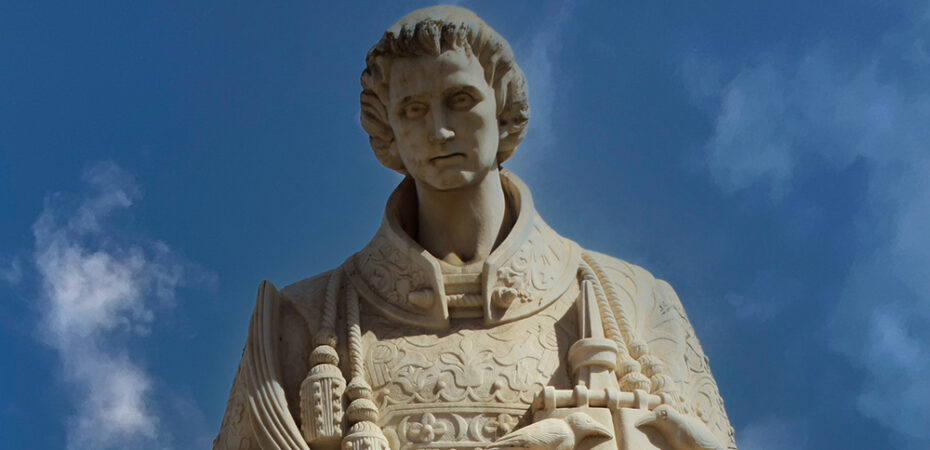Deacon Vincent of Saragossa
Meet an early Church deacon and martyr
Carlos Briceño Comments Off on Deacon Vincent of Saragossa
Just like they do today, deacons during the third century preached the word of God, but, for one Spaniard back then, proclaiming God’s Gospel truths led to a heroic witness of faith — and his torture and death.
Deacon Vincent of Saragossa was born in the third century in Huesca, Spain, near Saragossa, which is where he spent most of his life. Vincent served as a deacon under Bishop Valerius of Saragossa. Because the bishop suffered from a speech impediment, he asked Vincent to preach on his behalf throughout the diocese.
Unfortunately, Vincent and other Catholics encountered major persecution. To preserve his authoritarian rule, the Roman emperor at the time, Diocletian, declared war on Christianity, which is not surprising as he liked his subjects to kneel in his presence, and he preferred to be called “Lord and God.”
Diocletian made it clear that God — and Jesus, the Son of God — were not to compete with his narcissistic nature. He decreed that clergy offer sacrifices to the gods and that Scriptures be burned, church gatherings forbidden and worship places destroyed.
Keeping in lockstep with his supreme leader, Dacian, the local governor who was also known for his cruelty, enforced the decree by arresting the bishop and Vincent. He exiled Valerius and put a bull’s-eye on the deacon, hoping to get him to renounce his faith, which needed to include burning Scripture.
To that end, Vincent was starved. He was stretched on the rack. His flesh was torn with hooks. He was placed on a bed full of red-hot iron spikes. His wounds were rubbed with lard and salt. His dungeon floor was littered with broken pieces of pottery — not the most comfortable “bed” to sleep on.
Here is how Vincent responded, according to Prudentius, a Roman, who wrote poems about the martyrs, including Vincent and St. Lawrence:
“A levite of the sacred tribe,
Who at God’s altar stands and serves,
One of the seven pillars white:
“‘Let these dark fiends rule over you,
Bow down before your wood and stone;
Be you the lifeless pontifex
Of gods as dead as you, yourself.
But we, O Dacian, will confess
The Father, Author of all light,
And Jesus Christ, His only Son,
As one true God, and Him adore.’”
Vincent was observed being at peace and praising God during the times he was tortured to the point that his witness caused one of his jailers to convert to Christianity.
In recalling Vincent’s steadfast love of God, St. Augustine preached the following in Sermon 276: “Such hideous cruelty was being unleashed on the martyr’s body, and such calm serenity was displayed in his voice; such harsh, savage punishments being applied to his limbs, but such assurance echoing in his words, that we would have imagined that in some marvelous way, while Vincent was suffering, that it was someone else and not the speaker that was being tortured.
“And indeed, my dearest brethren, that is how it was; undoubtedly that is how it was: Someone else was speaking. Christ, you see, promised even this to his witnesses in the Gospel, when he was preparing them for this sort of contest. For he said: ‘Do not think beforehand about how or what you are to speak. For it is not you that are speaking, but the Spirit of my Father who is speaking in you’ (Mt 10:19-20).
“So the flesh was suffering, and the Spirit was speaking. And while the Spirit was speaking, not only was ungodliness being confounded and convicted, but weakness was even being strengthened and comforted.”
Vincent died in 304. His feast day is celebrated on Jan. 22.
CARLOS BRICEÑO is director of communications and evangelization at the Basilica of St. Mary in Old Town, Alexandria, Virginia.





